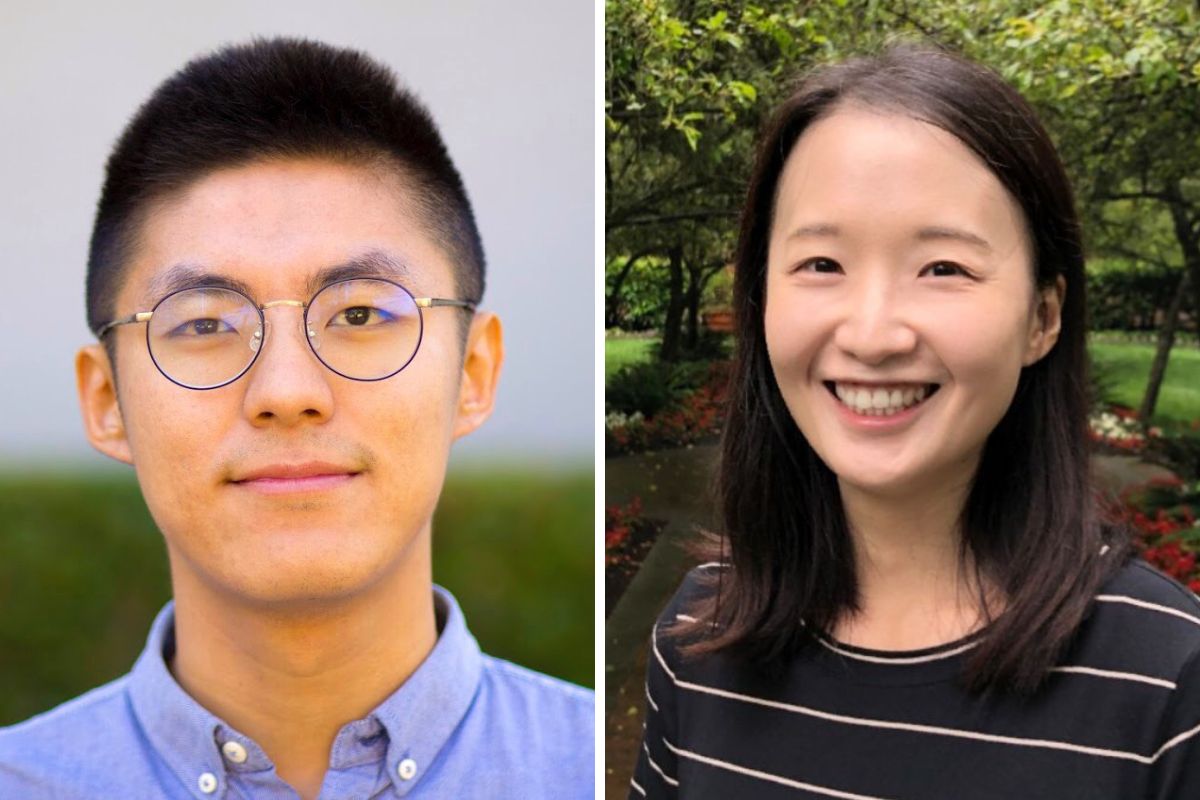- Ongoing work at the College and its new online master’s degree in Data, Learning & Society underscore the importance of preparing professionals for the socially responsible application of data to understand and support learning
- Examples include work to reveal the bias and unintended consequences of generative artificial intelligence, executed through large-scale data analytics as well as efforts to improve test and curriculum fairness
Now more than ever, educational equity — ensuring all students have access to meaningful educational opportunities, from college preparation and career assistance to support resources to civic participation — is crucial across America.
Amid TC’s broader work in this area, faculty in the Human Development program are finding unique ways to leverage data science for good. Renzhe Yu, Assistant Professor of Learning Analytics and Educational Data Mining, is leveraging data analytics to uncover the unintended consequences of the rapid adoption of generative artificial intelligence. Youmi Suk, Assistant Professor of Applied Statistics, is harnessing big educational data and cutting-edge machine learning methods to address questions about equity and fairness in educational practice.

Renzhe Yu, Assistant Professor of Learning Analytics and Educational Data Mining, and Youmi Suk, Assistant Professor of Applied Statistics (Photo: TC Archives)
How Data Analytics Can Address the Growing Digital Divides
Stemming from Yu’s interest in learning how to “equip ourselves to better address existing issues related to education inequity,” his most pressing research focuses on understanding how the mass adoption of generative artificial intelligence has exacerbated digital divides in schools and institutions. Explored in a forthcoming working paper, the project uses large-scale text data from the education system to examine differences in everyday teaching and learning experiences as well as institutional attitudes toward generative AI.
“There are students who are more tech-savvy, there are instructors who are more experienced in using technologies, there are institutions that are more open-minded…and they have probably taken good advantage of ChatGPT and other generative AI tools in the past year,” explains Yu. But there’s also a significant number of students, parents, instructors, and institutions that don’t have that kind of access or awareness.“ Although it’s just one year, the emergence of this technology may have widened these gaps,” says Yu.

(Image: iStock)
To explore this growing divide, Yu and his research team focused on real-world data sources instead of conducting lab-controlled experiments in order to see how these relationships are playing out in real life. Because of his familiarity with the tech industry and the still-common impulse to innovate without considering the way that entire populations can be left behind, Yu says, “it’s really important to identify these unintended consequences in the early phase of life for these technologies.”
Yu’s other research interest in algorithmic bias — where he has long been exploring how algorithms used for decision making are treating learners differently based on race or other socio-demographic markers — is also made more urgent by the emergence of generative AI tools because if biased algorithms are “having dynamic conversations with students, [as is the case with generative AI,] the negative consequences of any bias in the process would be even more concerning.”
Ultimately, Yu hopes that his work provides perspective that is often ignored in the innovation process in order to create an education system that achieves equity with the help of advanced technology.

(Image: iStock)
How Interdisciplinary Approaches to Analyzing Data Can Promote Fairness
A leading researcher exploring test accommodation effectiveness, Suk takes a multi-pronged approach to her main research goal of “developing and applying quantitative methods to address practical and important problems in the educational, social, and behavioral sciences.” One of her central projects is forging a connection between test fairness, a field of study that has been developed over 60 years, and algorithmic fairness, an emerging field with high stakes as algorithmic models are utilized in all aspects of life.
“We can leverage the people, the methods and the concepts developed in test fairness in order to facilitate understanding of algorithmic fairness,” says Suk who is incorporating psychometrics and causal inference concepts into her work. “And it can go both ways. If there's any new discussion happening around algorithm fairness, we can leverage that discussion to make assessments and tests fairer.” As a part of this work, Suk is crafting new frameworks to investigate test fairness on the individual level instead of on the group level, based on the discussions on individual fairness within the algorithmic fairness research.
Her work is also directly informing her recent research on fair and personalized math curriculum recommendations for high school students, funded by the National Science Foundation. It’s known that students get the most benefit from personalized recommendations but “we have to be aware there may be some unconscious bias [in the recommendations],” explains Suk. To address this, Suk is applying algorithmic fairness constraints to create more equitable recommendations for high school students.
Through her varied research, Suk ultimately hopes to “create equitable and fair testing environments for all students and personalized curriculum plans that empower every student to succeed.”
